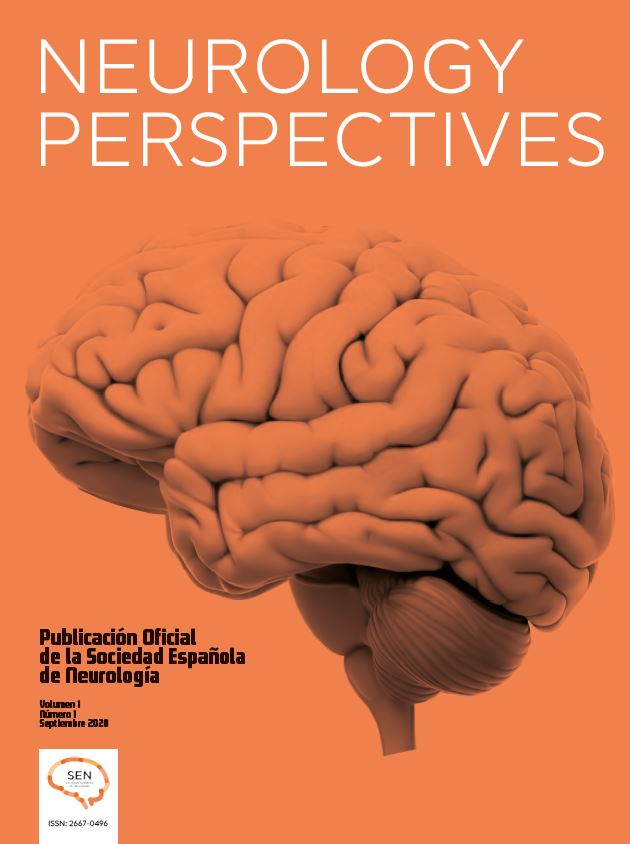We read with interest the article by Ceron-Blanco et al. on a retrospective study of 14 SARS-CoV-2 positive stroke patients.1 Eleven patients had completed ischemic stroke, 2 transitory ischemic attacks, and 1 intracerebral haemorrhage (ICH).1 Twelve patients had severe COVID-19 and 6 patients required mechanical ventilation.1 The inflammatory markers (ferritin, CRP, D-dimer, lactate-dehydrogenase) were increased in all 14 patients.1 Nine patients had a modified Rankin scale score of >2 and 2 patients died.1 It was concluded that SARS-CoV-2 positive patients are at increased risk of stroke and that hypercoagulability and immune thrombosis are the most likely causes of stroke in SARS-CoV-2 positive patients.1 The study is excellent but has limitations that should be discussed.
We disagree that COVID-19 predisposes for stroke.1 The design of the study does not allow such a conclusion. A large cohort with SARS-CoV-2 positive PCR must be compared to a corresponding cohort SARS-CoV-2 test negative in terms of demographic variables, frequency of ischemic stroke, cardiovascular risk factors, other comorbidities, treatment, and co-medication, and the outcome to assess whether SARS-CoV-2 positive patients actually have an increased stroke risk.
The results of the Toast classification results presented in Table 1 apply only to ischemic stroke, not ICH. However, patient 12 was classified as Toast 5.1 This inconsistency should be clarified.
Information on intra- and extra-cranial arteries is missing. How many of the included patients had intra- or extra-cranial artery stenosis or occlusion in the anterior or posterior circulation?
An unaccounted stroke mechanism is the reversible, cerebral vasoconstriction syndrome (RCVS). Although RCVS has only rarely been reported as a complication of SARS-CoV-2 infection,2 it should not be neglected as a stroke mechanism, especially in patients with sudden onset severe headache.
Since 9 patients each had arterial hypertension and obesity and 2 each diabetes, hyperlipidemia, and coronary heart disease, it must be ruled out that these risk factors and not SARS-CoV-2 were actually responsible for the stroke. Since SARS-CoV-2 infection can also be complicated by cardiac involvement, we should know how many of the 14 patients had myocarditis, supra- or ventricular arrhythmias, or heart failure. What were the results of echocardiography and long-term ECG recordings, especially in the patients with embolic stroke?
Although it was concluded that ischemic stroke in COVID-19 patients could be due to hypercoagulability or immune thrombosis,1 antibodies against platelet factor-4 (PF4) were not tested in any of the 14 patients. PF4 antibodies have been reported to cause thrombosis associated with SARS-CoV-2 infection as well as SARS-CoV-2 vaccination.3
There is a discrepancy between the saying that La Cardio does not have a neurology department and saying that all stroke patients are enrolled to the neurology service of La Cardio.1 This discrepancy should be clarified.
There is also a contradiction between the saying that 63% of strokes in SARS-CoV-2 positive patients were cryptogenic and assuming that the stroke in the 14 included patients was due to SARS-CoV-2 infection.1 Either the cause of a stroke is known or unknown. This should be clarified.
No pathophysiological explanation for ICH in patient 12 was provided.1 The patient apparently had normal blood pressure.1 Was ICH attributed to coagulopathy, thrombocytopenia, or did the patient have an ischemic stroke with secondary bleeding? Was there evidence fo amyloid angiopathy, an arterio-venous malformation or a cavernoma? Was there evidence of an ischemic lesion after the bleeding subsided?
It is reported that none of the 14 patients had venous sinus thrombosis (VST).1 However, computed tomography or magnetic resonance venography with contrast medium (CTV, MRV) has not been reported to be performed in all patients. As long as no CTV or MRV has been performed, VST cannot be ruled out with certainty.
Overall, the interesting study has limitations that call the results and their interpretation into question. Addressing these issues would strengthen the conclusions and could improve the status of the study. Stroke in SARS-CoV-2 positives not necessarily is caused by the virus.
FundingNo funding was received.
Patient consent (informed consent)Not applicable.
Compliance with ethics guidelinesThis article is based on previously conducted studies and does not contain any new studies with human participants or animals performed by any of the authors.
Data access statementAll data are available from the corresponding author.
Author contributionJF: design, literature search, discussion, first draft, critical comments, final approval.





